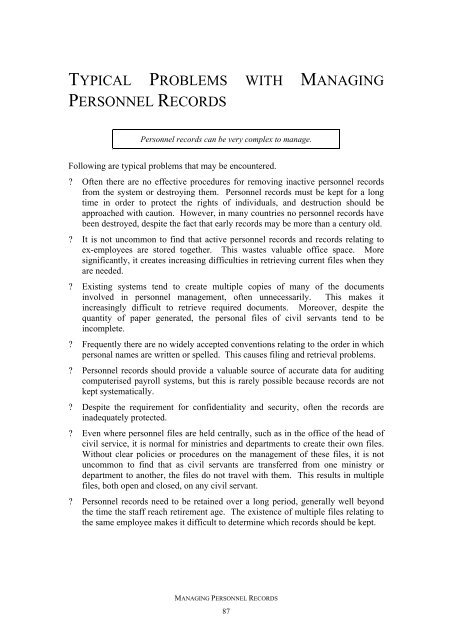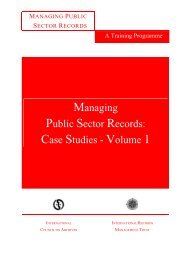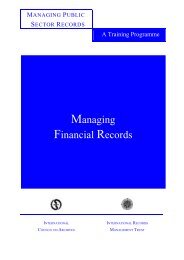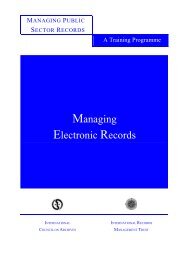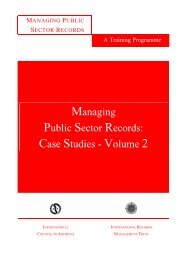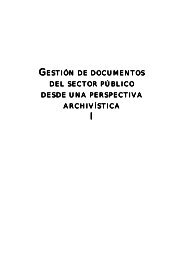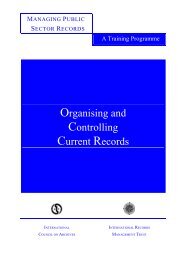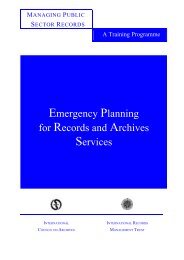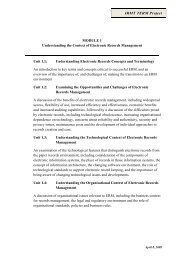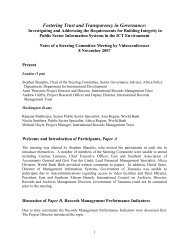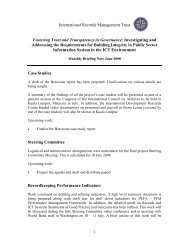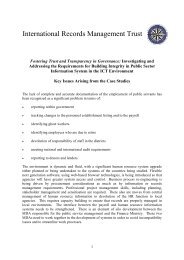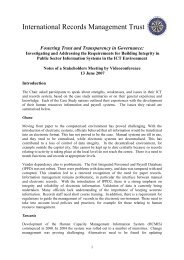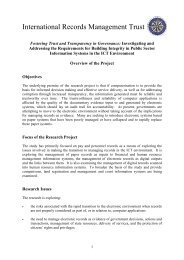Managing Personnel Records - International Records Management ...
Managing Personnel Records - International Records Management ...
Managing Personnel Records - International Records Management ...
You also want an ePaper? Increase the reach of your titles
YUMPU automatically turns print PDFs into web optimized ePapers that Google loves.
TYPICAL PROBLEMS WITH MANAGING<br />
PERSONNEL RECORDS<br />
<strong>Personnel</strong> records can be very complex to manage.<br />
Following are typical problems that may be encountered.<br />
? Often there are no effective procedures for removing inactive personnel records<br />
from the system or destroying them. <strong>Personnel</strong> records must be kept for a long<br />
time in order to protect the rights of individuals, and destruction should be<br />
approached with caution. However, in many countries no personnel records have<br />
been destroyed, despite the fact that early records may be more than a century old.<br />
? It is not uncommon to find that active personnel records and records relating to<br />
ex-employees are stored together. This wastes valuable office space. More<br />
significantly, it creates increasing difficulties in retrieving current files when they<br />
are needed.<br />
? Existing systems tend to create multiple copies of many of the documents<br />
involved in personnel management, often unnecessarily. This makes it<br />
increasingly difficult to retrieve required documents. Moreover, despite the<br />
quantity of paper generated, the personal files of civil servants tend to be<br />
incomplete.<br />
? Frequently there are no widely accepted conventions relating to the order in which<br />
personal names are written or spelled. This causes filing and retrieval problems.<br />
? <strong>Personnel</strong> records should provide a valuable source of accurate data for auditing<br />
computerised payroll systems, but this is rarely possible because records are not<br />
kept systematically.<br />
? Despite the requirement for confidentiality and security, often the records are<br />
inadequately protected.<br />
? Even where personnel files are held centrally, such as in the office of the head of<br />
civil service, it is normal for ministries and departments to create their own files.<br />
Without clear policies or procedures on the management of these files, it is not<br />
uncommon to find that as civil servants are transferred from one ministry or<br />
department to another, the files do not travel with them. This results in multiple<br />
files, both open and closed, on any civil servant.<br />
? <strong>Personnel</strong> records need to be retained over a long period, generally well beyond<br />
the time the staff reach retirement age. The existence of multiple files relating to<br />
the same employee makes it difficult to determine which records should be kept.<br />
MANAGING PERSONNEL RECORDS<br />
87


